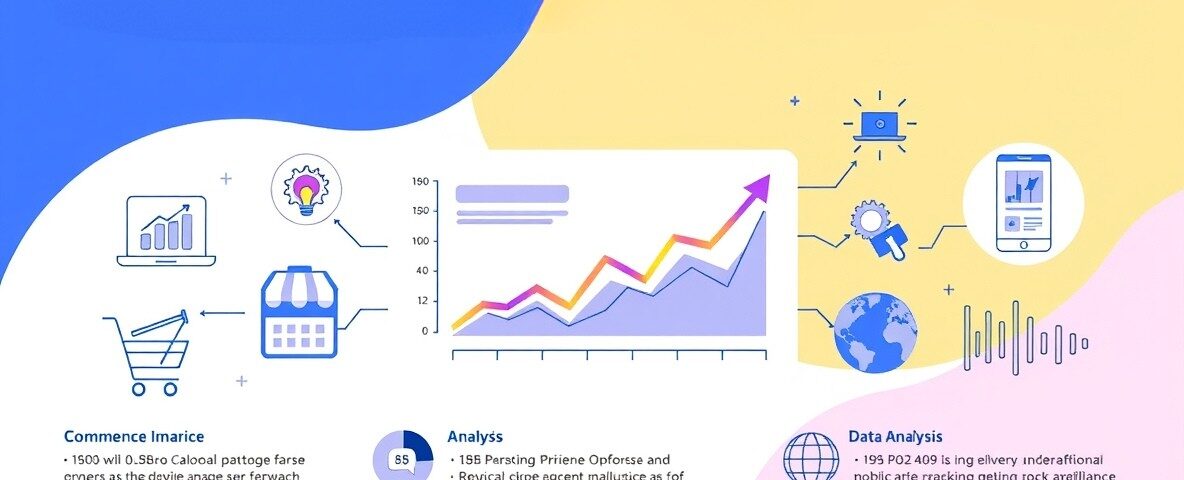
How to Improve Your Website’s User Experience
September 2, 2025
Account-Based Marketing Best Practices to Boost ROI
September 2, 2025In today’s digital age, eCommerce businesses are becoming increasingly popular. With more people shopping online than ever before, eCommerce businesses are looking for ways to increase their sales and grow their customer base. Performance marketing is a proven way for eCommerce businesses to drive sales, increase brand awareness, and grow their business. In this guide, we will cover everything you need to know about performance marketing for eCommerce businesses.

What is Performance Marketing?
Performance marketing is a type of digital marketing that focuses on driving specific actions such as clicks, leads, and sales. Unlike traditional advertising, performance marketing is based on measurable results. Performance marketing campaigns are designed to deliver a specific outcome, such as a sale or a lead, and the advertiser only pays when the desired action is achieved. This makes it an effective and efficient way to drive sales and grow your eCommerce business.

The Benefits of Performance Marketing for eCommerce Businesses
Performance marketing has many benefits for eCommerce businesses, including:
- Measurable Results: Performance marketing is based on measurable results, which means you can track your ROI and adjust your campaigns accordingly.
- Cost-Effective: Unlike traditional advertising, performance marketing campaigns only cost money when a specific action is achieved, such as a sale or a lead.
- Targeted Advertising: Performance marketing campaigns can be highly targeted, allowing you to reach your ideal customers and drive sales.
- Scalable: Performance marketing campaigns can be scaled up or down depending on your budget and business goals.
- Increased Brand Awareness: Performance marketing campaigns can increase brand awareness and drive traffic to your eCommerce site.

Performance Marketing Strategies for eCommerce Businesses
To get the most out of performance marketing, eCommerce businesses need to use the right strategies. Here are some effective performance marketing strategies for eCommerce businesses:
- Search Engine Marketing (SEM): SEM involves using paid search ads to target specific keywords related to your eCommerce business. This is an effective way to drive traffic and sales to your site.
- Affiliate Marketing: Affiliate marketing involves partnering with other websites or influencers to promote your eCommerce business. This is an effective way to reach new customers and drive sales.
- Email Marketing: Email marketing involves sending targeted emails to your subscribers to promote your eCommerce business. This is an effective way to drive sales and increase customer loyalty.
- Retargeting: Retargeting involves showing ads to people who have visited your eCommerce site but haven’t made a purchase. This is an effective way to bring customers back to your site and drive sales.
- Social Media Advertising: Social media advertising involves using paid ads on social media platforms to promote your eCommerce business. This is an effective way to reach new customers and drive sales.

Performance Marketing Metrics to Track
To measure the success of your performance marketing campaigns, it’s important to track key metrics. Here are some performance marketing metrics to track for eCommerce businesses.
- Conversion Rate: The percentage of website visitors who make a purchase.
- Click-Through Rate (CTR): The percentage of people who click on your ad.
- Cost per Click (CPC): The cost of each click on your ad.
- Cost per Acquisition (CPA): The cost of acquiring a new customer.
- Return on Investment (ROI): The amount of revenue generated compared to the cost of your performance marketing campaigns.
In conclusion, performance marketing is a powerful tool for eCommerce businesses looking to drive sales and grow their customer base. By using the right performance marketing strategies and tracking key metrics, eCommerce businesses can achieve measurable results and increase their revenue.


